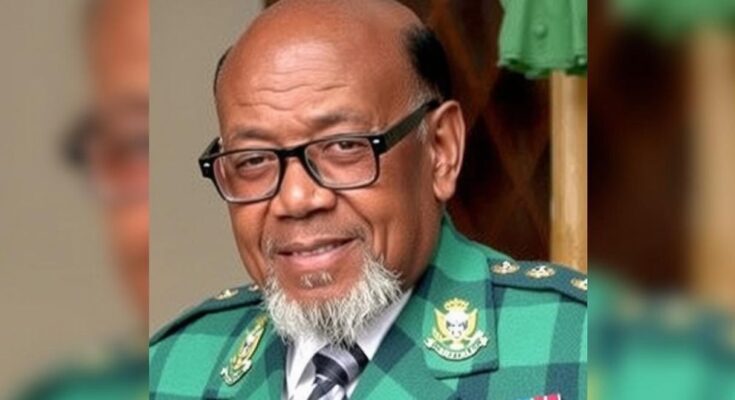Desi Bouterse, Suriname’s ex-dictator and former elected president, died at 79 after a brief illness. His complex legacy includes a history of coups, significant social reforms, and convictions for drug trafficking and human rights violations. Despite his criminal record, he retained considerable support among certain segments of the population. His death has generated mixed reactions within the nation and prompted a reevaluation of his impact on Surinamese politics.
Desi Bouterse, the former military dictator and later democratically elected president of Suriname, has passed away at the age of 79, as confirmed by the Surinamese government. Bouterse, who died on Tuesday after a brief illness, was a figure of complexity in Suriname’s history, having initially come to power in a 1980 coup. Although he faced international condemnation and was accused of orchestrating political violence, he maintained popularity among certain sectors of the population throughout his life. After an initial military tenure, he returned to the presidency in 2010, remaining in office for ten years.
His death stirred mixed emotions within the nation, with current President Chan Santokhi extending condolences while urging calm amongst citizens during this turbulent period. Bouterse’s legacy is complicated by his criminal convictions, including a 2019 in absentia sentence for his involvement in the execution of 15 dissenters during a political purge in 1982, which he attributed to alleged CIA-backed conspiracies. Despite these legal troubles, he enjoyed a loyal following, largely due to his social policies promoting education and healthcare.
In the wake of his death, the National Democratic Party (NDP), which Bouterse founded, expressed sorrow over what they termed the “unexpected passing of our spiritual father.” His body was taken to his residence in Paramaribo, where family and supporters held vigils to honor him. Bouterse’s life was marked by political strife, allegations of human rights violations, and a controversial history of drug trafficking ties.
Desi Bouterse was a prominent figure in Surinamese politics, transitioning from military leader to elected president. His rule began with the 1980 coup that ousted a democratically elected government, following which he faced various accusations including orchestrating political violence. Following his ousting in 1987 amid international pressure, he returned to power through a bloodless coup in 1990. His lengthy political career saw him navigate complex relations with both international authorities and his domestic supporters, culminating in a presidential term that lasted a decade. Bouterse was a controversial figure, facing numerous legal challenges including a conviction for drug trafficking and being held responsible for political murders. His convictions did not diminish his support among many poorer and working-class citizens, thanks to his social policies. His attempt to flee justice became a significant aspect of his later years, where he lived in hiding even as he remained an influential political figure.
The death of Desi Bouterse marks the end of an era fraught with political turmoil in Suriname. While he faced serious legal repercussions for his actions during his regime, including convictions for human rights abuses and drug trafficking, Bouterse remained a significant figure for many Surinamese, particularly within poorer communities. His passing prompts a reflection on the lasting impacts of his governance, his contested legacy, and the political landscape of Suriname moving forward after his death.
Original Source: www.tiogapublishing.com




